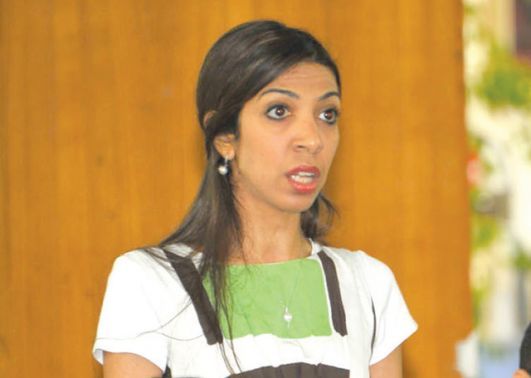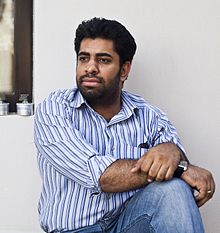28 Jun 2013 | Campaigns, Europe and Central Asia, Turkey Statements
Index on Censorship calls on the Turkish government to end its attempts to limit free speech as seen in its pressurising of journalists, criticism of social media commentary, and excessive violence in policing of recent protests.
The free speech organisation is very concerned at reports that the Turkish government has asked Twitter to set up an office in the country, allegedly to persuade the social media platform to remove tweets the government finds to be subversive or simply too critical. If true, this would be an extraordinary move.
Index CEO Kirsty Hughes said:
“The Turkish government appears increasingly unwilling to respect the fundamental rights of the Turkish people to freedom of expression and freedom of assembly. The increasing political pressure from government combined with excessive violence in policing are undermining rights and threaten to seriously chill free speech through direct censorship and self-censorship. Without proper respect for free speech, there can be no effectively functioning democracy.”
Related
• Turkey losing its way on free speech
• Turkey’s Taksim Square cleared after violent clashes
• The EU must take action on Turkey
• “There is now a menace called Twitter”
28 Jun 2013 | Middle East and North Africa
European ministers and Gulf Cooperation Council (GCC) members will meet on Sunday in Bahrain to discuss the future of their political and economic relations from 2013-2016. Bahrain’s free speech violations in recent weeks should also be up for discussion, says Sara Yasin

Bahrain is introducing new regulations on Voice Over Internet Protocol (VoIP) applications that could mean a ban on programmes like Skype, WhatsApp, Viber, and Tango.
Minister of State for Communication Fawaz bin Mohammed Al Khalifa cited “security considerations” for the new regulations, according to Gulf News. He also said that it was part of “efforts exerted by the GCC to ensure the existence of regulations that preserve the rights of operators and that there is no abuse of communication applications”. Saudi Arabia, also a member of the GCC, blocked Viber earlier this month. The country has also threatened to ban Skype and WhatsApp after the companies refused to comply with the country’s monitoring requests.
The UK National Contact Point (NCP) for the Organisation for Economic Cooperation and Development (OECD) has announced that it will consider a case brought against a UK-based surveillance company for selling technology that was used to spy on Bahraini dissidents. Five organisations filed formal complaints against Gamma International with the OECD, arguing that the company has been in violation of the OECD guidelines by selling its technology to repressive governments. The company has claimed that it “would not supply the product identified in the complaint in a situation where it believed it would be used for the purpose of repressing civil rights”. Last year suspicious e-mails were sent to Bahraini dissidents, including London-based activist Ala’a Shehabi. The e-mails were eventually linked to Gamma International’s FinFisher Suite, which infects email accounts and electronic devices using Trojans. Privacy International, along with the Bahrain Center for Human Rights, Reporters Without Borders, Bahrain Watch, and European Center for Constitutional and Human Rights brought the complaints against the security company in February this year.

Bahraini journalist Nazeeha Saeed
Manama’s Court of Appeal this week upheld the acquittal of Sarah Al-Moosa, a policewoman charged with torturing France 24 journalist Nazeeha Saeed. Al-Moosa was acquitted October last year, after a Manama Court decided that Saeed’s evidence was “contradictory” and “not consistent” with the forensic report. Saeed presented three medical reports confirming her account of torture while in police custody, after her arrest in May 2011. She was detained while covering a crackdown on pro-democracy protests.
The jail sentence of human rights defender Zainab Alkhawaja has been extended by two months for allegedly assaulting two policewomen. Alkhawaja has been in jail since 27 February this year, serving on charges of “taking part in illegal gathering, unlawful entry to Pearl Roundabout, and insulting a police officer.” The activist’s sentence means that she will be held until February next year. Alkhawaja has been active in documenting and speaking out against human rights violations since the start of unrest in the country in February 2011.

Human rights defender Mohammad Al-Maskati
The head of Bahrain Youth Society for Human Rights (BYSHR), Mohamed Al-Maskati, is currently facing charges for “participation in illegal protest.” The activist appeared before Manama’s Lower Criminal Court on 19 June, but the hearing was then postponed until July. If convicted, Al-Maskati faces up to six months jail time. The Bahrain Center for Human Rights (BCHR) believes that Al-Maskati has been targeted for condemning the regime’s human rights violations at the Human Rights Council in Geneva last September. The activist reportedly received threatening phone calls for his participation, and was targeted by pro-government newspapers following his return. Index has previously condemned Bahrain’s treatment of human rights defenders, including BCHR head Nabeel Rajab, who is serving a two-year jail sentence for “organising illegal gatherings.”
Sara Yasin is an Editorial Assistant at Index. She tweets from @missyasin
28 Jun 2013 | Digital Freedom, In the News
 Index on Censorship is pleased to announce Charley-Kai John as the winner of our first student blogging competition on free speech. Entrants were asked to submit an essay about the biggest challenges to free expression in the world today. Here is John’s winning entry:
Index on Censorship is pleased to announce Charley-Kai John as the winner of our first student blogging competition on free speech. Entrants were asked to submit an essay about the biggest challenges to free expression in the world today. Here is John’s winning entry:
The biggest challenge facing freedom of expression in the world today is that the world wide web is not worldwide.
You see something. You Tweet about it. You post a status on Facebook. You share. You express. While it may not always be obvious at the time: you are flexing your freedom of expression. It is an everyday thing that can be found in your pocket or on your desk. Internet access is your tool to comment on society with. I am uploading this to Index right now using the internet.
It was given to ‘us’ for free. However the ‘you’ and ‘us’ I speak of are subjective. I am speaking about people in Britain, and other countries where the web access is widely available. This subjectivity undermines the freedom of expression embodied in the premise of a ‘world wide’ web. Having open internet access is a privilege that I and many people often take for granted.
A trending # has the ability to connect people across the world instantaneously but that does not mean it will be seen by everyone in every country. North Korea is an extreme and yet important example. “Technically” this is a country with internet, however to say it is a country with internet encapsulates access which is not limited to certain members of society and heavily censored by the government.
The country recently gained its own wireless 3G network. It is a 3G network unlike any other. The 2 million North Korean citizens who now use this service are unable to access the internet. The DPRK twitter account cannot even be accessed. A shame for any North Korean wishing to see the same message its government relays daily, regurgitated through a medium designed to expand the world. What little internet access North Koreans do have is used instead to make their world smaller.
A country that is secluded from the internet is secluded from the world. The North Korean government has been able to hold its grasp by limiting access to a world outside the one they have created. An outside world is not a possibility without a world wide web to present it. This access needs to be in the hands and homes of North Koreans because at the moment, it is an understandably difficult external world to visualise.
‘Hello world from comms center in #Pyongyang.’
Journalist Jean H. Lee tweeted this on February 24 2013. It may only be one tweet floating around the Twittersphere that day but it is believed to be the first twitter message sent using the country’s mobile 3G service. It is also probably one of the last. Internet access withheld from its own citizens was offered to those coming into the country and even this service has reportedly now been stopped.
I want to see a tweet, not from a journalist, but from a North Korean: expressing views that are not the government’s but their own. I want this blog post to be easily accessible in North Korea. The world wide web has turned freedom of expression into a truly global thing but there is still room for it to grow.
—
John is a first-year undergrad at the University of Warwick studying English literature. His blog post focuses on the limits of digital freedom of expression in authoritarian North Korea.
The judging panel — which inculded Index on Censorship CEO Kirsty Hughes and former Chair Jonathan Dimbleby, Global Publishing Director at SAGE Ziyad Marar, and Head of Journalism at City University London George Brock — commended John’s entry for his original point of view, fresh and engaging style, and clear understanding of one of today’s greatest challenges to freedom of expression.
John’s winning entry will be published in the Index on Censorship magazine. He will also receive £100, a one-year magazine subscription and will be invited to our magazine launch party in September.
28 Jun 2013 | In the News
INDEX POLICY PAPER
Is the EU heading in the right direction on digital freedom?
While in principle the EU supports freedom of expression, it has often put more emphasis on digital competitiveness and has been slow to prioritise and protect digital freedom, Brian Pellot, digital policy advisor at Index on Censorship writes in this policy paper
(Index on Censorship)
BRAZIL
Brazil protesters: Is common ground really necessary?
The bus fare hikes that sparked widespread Brazilian protests have been reversed, but protests continue. Can they last?
(The Christian Science Monitor)
BURMA
Burma censors Time Magazine for coverage of radical Buddhists
Reporters Without Borders condemns the decision by Burmese magazine distributor Inwa Publications not to sell Time Magazine’s July issue, which has cover story about the Burmese Buddhist monk Ashin Wirathu headlined “The Face of Buddhist Terror.”
(Thailand Business News)
CHINA
Rethinking the Firewall as a One-Way Mirror
Maybe he should be known for hanging China’s One-Way Mirror instead constructing its Great Firewall. That’s the message Chinese Internet users are sending as the nation’s best-known censorship engineer, Fang Binxing, said he was retiring. Known as the father of China’s Great Firewall for helping develop tools that keep Internet users in the country from surfing websites available elsewhere, Mr. Fang is facing a fresh line of criticism in the wake of allegations by former U.S. defense contractor Edward Snowden that American intelligence agencies regularly compromised Chinese servers.
(Wall Street Journal)
CANADA
Bill to end ‘hate speech’ portion of human rights law gets mixed reviews but Senate approval
A contentious section of Canadian human rights law, long criticized by free-speech advocates as overly restrictive and tantamount to censorship, is gone for good.
(The Province)
EUROPEAN UNION
Post-Prism leaks, where does the EU stand on digital freedom?
The EU needs to develop a coherent and comprehensive digital freedom strategy. Brian Pellot writes
(Index on Censorship)
HUNGARY
Can free expression survive in Hungary?
Funding has been removed from projects not deemed to be in keeping with the official view of Hungarian culture.
(New Statesman)
SUDAN
Sudanese journalist targeted for allegedly insulting the military
When three journalists were invited to accompany a military official to a town supposedly recaptured from rebels, they did not expect to end up caught in crossfire. One journalist is being targeted after an anonymous and more honest account of the incident appeared online. Reem Abbas reports
(Index on Censorship)
TUNISIA
Tunisian court sets free Femen activists
Three European women who were sentenced to four months in jail for staging a topless protest in support of a detained Tunisian Femen activist have arrived in Paris after being freed a day earlier by a Tunisian court, French media has reported.
(France 24)
TURKEY
Angela Merkel warns Turkey European democratic values ‘non-negotiable’ for EU entry
GERMAN Chancellor Angela Merkel said she welcomed an agreement to reopen talks with Turkey about joining the European Union but warned in the light of the crackdown on Turkish anti-government protests that democratic values were non-negotiable.
(Irish Independent)
Turkey heads for Twitter showdown after anti-government protests
The Turkish government is heading towards a showdown with Twitter after asking it to set up a “representative office” inside the country. The move could presage censorship of the microblogging service it has accused of helping stir weeks of anti-administration protests.
(The Guardian)
UNITED KINGDOM
British media ‘may leave Belfast over province’s refusal to change libel laws’
British media groups may pull out of Northern Ireland because the province is refusing to implement changes to antiquated libel laws, the House of Lords has been warned.
(The Daily Mail)
Wealthy are gagging the media: Nesbitt
The UUP leader and a retired part-time judge yesterday told MLAs that the wealthy and powerful are using the current libel laws in an attempt to “control” the media.
(News Letter)
Libel lawyer: I did not lobby DUP to block bill
Belfast’s most prominent libel lawyer has said that he did not lobby DUP Finance Minister Sammy Wilson to block British libel reforms extending to Northern Ireland.
(News Letter)
Free Speech or Hate Speech? Britain Bans U.S. Anti-Muslim Bloggers
A British decision to bar a visit by two prominent American anti-Islam activists has prompted righteous indignation from the targets of the ban as well as a more measured debate about the limits of free speech.
(The New York Times)
Free Speech Dies in UK: Robert Spencer, Pamela Geller Banned from Entering
“U.S. Bloggers banned from Entering the UK.” That’s how a BBC headline broke the news that authors Pamela Geller and Robert Spencer were denied entry to the country that gave the world the Magna Carta.
(PJ Media)
UNITED STATES
Kickstarter’s Choice: How free should speech be on the web?
“No problem. I don’t want you to do anything you aren’t comfortable with.” Memorize that line. It is your go-to when faced with resistance. Say it genuinely, without presumption. All master seducers are also masters at making women feel comfortable. You’ll be no different. If a woman isn’t comfortable, take a break and try again later.”
(The New Yorker)
Another ‘Free Speaker’ Jailed for Views
Speaking one’s mind in American police state becoming an increasingly dangerous proposition
(American Free Press)
Virginia-based appeals court reinstates NC dietary advice blogger’s free-speech lawsuit
A federal appeals court has reinstated a North Carolina blogger’s lawsuit claiming state officials violated his free-speech rights. The North Carolina Board of Dietetics/Nutrition last year told Stanley resident Steve Cooksey to take down or modify parts of his website offering dietary advice to fellow diabetics. The board said it had received a complaint that Cooksey was operating as a dietician without a state license.
(The Washington Post)
For Censoring Websites, the Muzzle Award Goes to Rhode Island Public Schools
Over the past two decades, the Internet has become a crucial tool in public education, opening schoolchildren to the broader world. Yet concerns about sex, violence, and other inappropriate content has led many school districts to impose draconian restrictions limiting kids’ access to even the most innocuous material.
(WGBH Boston)
Previous Free Expression in the News posts
June 27 | June 26 | June 25 | June 24 | June 21 | June 20 | June 19 | June 18 | June 17




 Index on Censorship is pleased to announce Charley-Kai John as the winner of our first student blogging competition on free speech. Entrants were asked to submit an essay about the biggest challenges to free expression in the world today. Here is John’s winning entry:
Index on Censorship is pleased to announce Charley-Kai John as the winner of our first student blogging competition on free speech. Entrants were asked to submit an essay about the biggest challenges to free expression in the world today. Here is John’s winning entry: